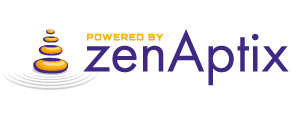PLATFORM

FOR BIG AND FAST DATA
zenAptix has created an open standards-based fast data platform, called Aqueduct, that can capture, store and analyse multiple streams of data to perform Complex Event Processing.
Whereas traditional methods of data management have struggled with the high volume, velocity, and variety of big data, Aqueduct can identify significant patterns – such as opportunities or threats – and then suggest actions to take advantage of these insights.
Whereas traditional methods of data management have struggled with the high volume, velocity, and variety of big data, Aqueduct can identify significant patterns – such as opportunities or threats – and then suggest actions to take advantage of these insights.
Aqueduct supports 4 distinct frameworks that allows rapid development and deployment for industry-specific applications:

THE INGESTION LAYER
This layer of our big data platform ingests huge amounts of un-structured and semi-structured data, ad infinitum, in a fast and cost-effective manner for monitoring, real-time analytics and reaction, and in order to store data for later use. Once the real-time data analytics is done, it is then presented as consolidated information so that value can be extracted.

THE STORAGE LAYER
This layer of our big data platform stores semi-structured and un-structured data, continuously, and makes vast amounts of data available. The platform’s storage capacity is easily and automatically scaled depending on your data storage needs, and is able to recover immediately in case of disruptions; thereby providing a seamless operation.

THE EXTRACTION LAYER
This layer of our big data platform is the space from which data scientists extract and interrogate the vast quantities of data stored, in perpetuity. The technology underpinning this layer enables data scientists to query historical data by means of models and algorithms in order to, for example, establish trends in space and time.

THE PRESENTATION LAYER
This layer of our big data platform presents aggregated data from both the Ingestion and Extraction Layers via different methods including heat maps, histograms, dials and graphs. This layer allows the end-users to find value in the information presented and enables them to make more accurate predictions and informed decisions.
To complement these frameworks, Notebooks provide a collaborative interface to perform exploratory data analytics, backed by Spark. Aqueduct’s growing pool of customised data frameworks are able to relate disparate datasets across time and space, and open up the potential to monetise data using distributed ledger technology.
To complement these frameworks, Notebooks provide a collaborative interface to perform exploratory data analytics, backed by Spark. Aqueduct’s growing pool of customised data frameworks are able to relate disparate datasets across time and space, and open up the potential to monetise data using distributed ledger technology.






